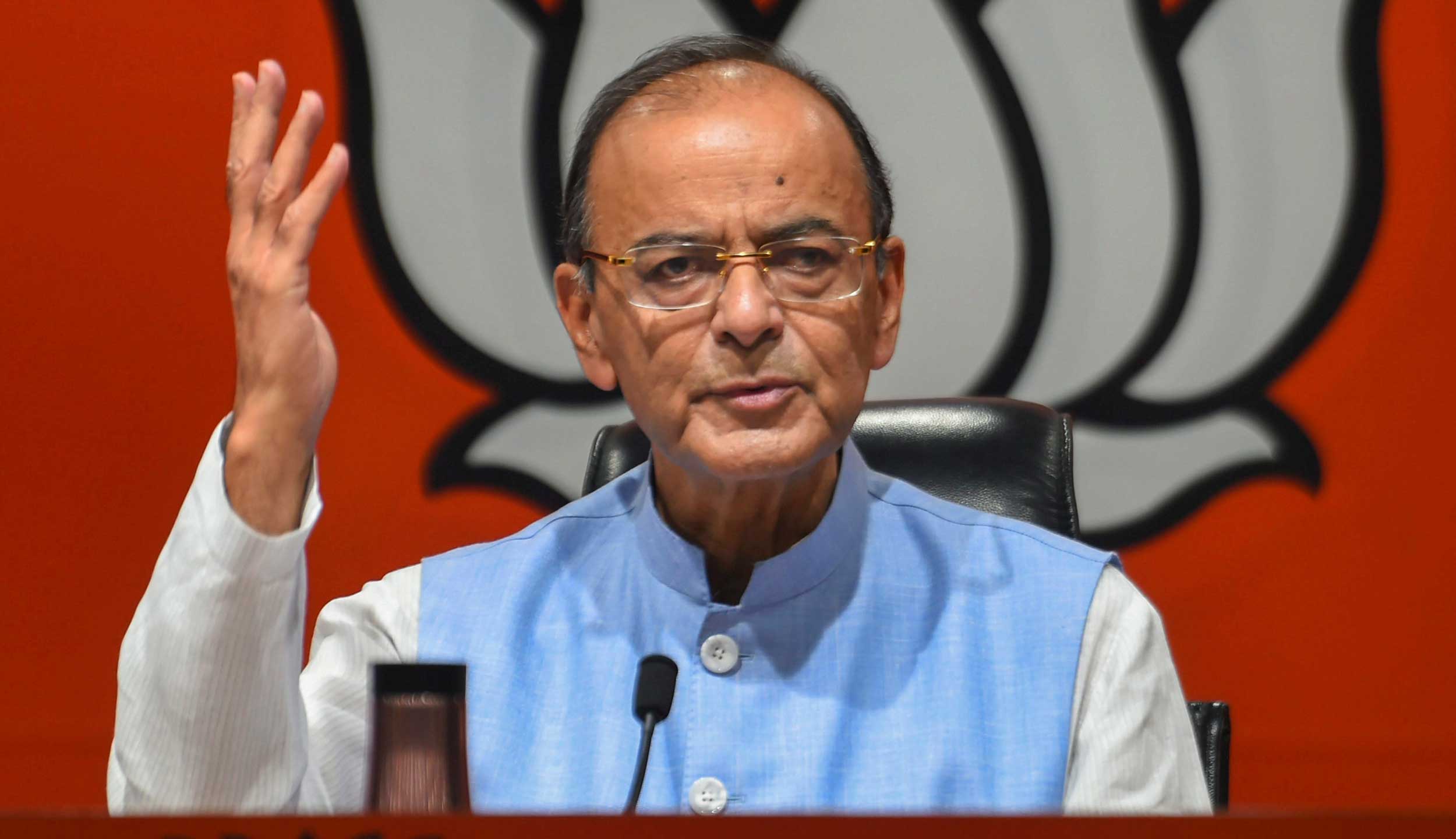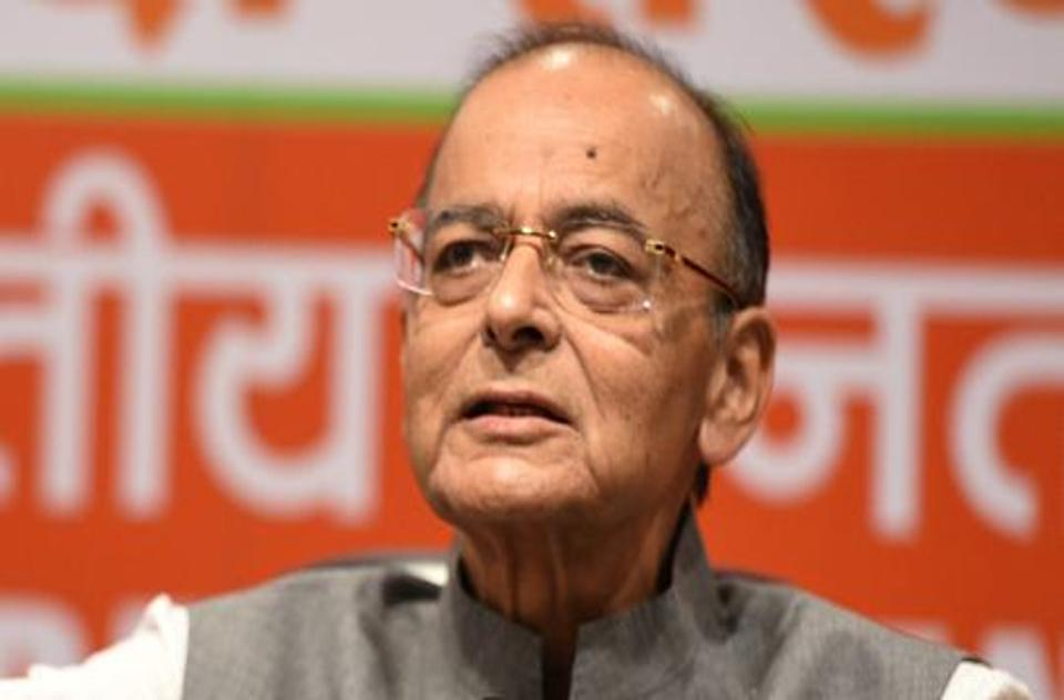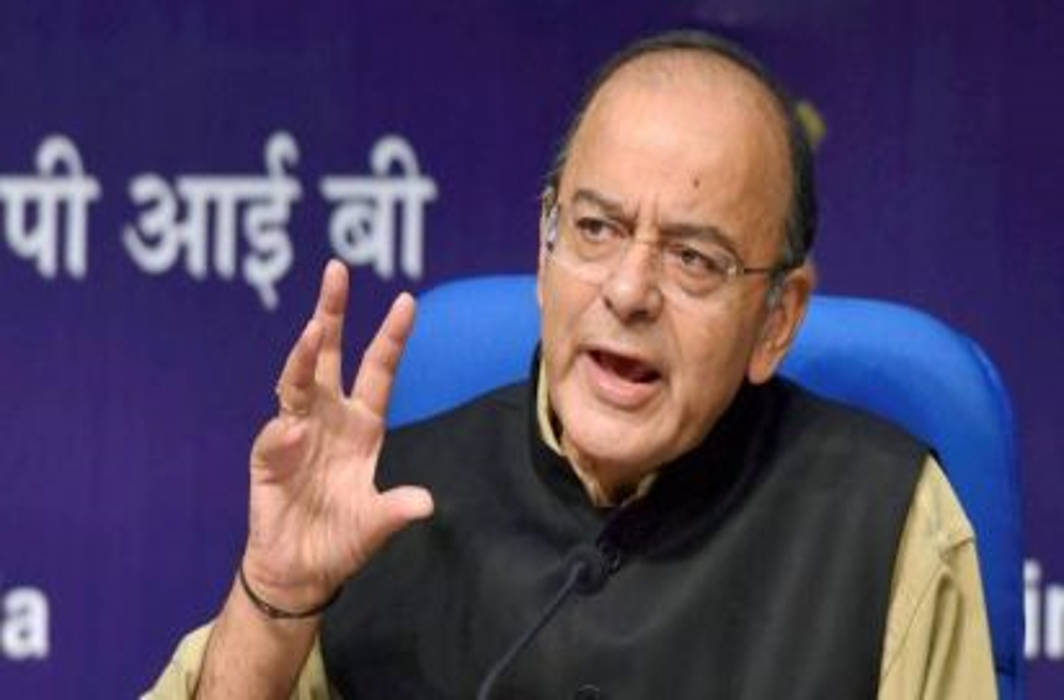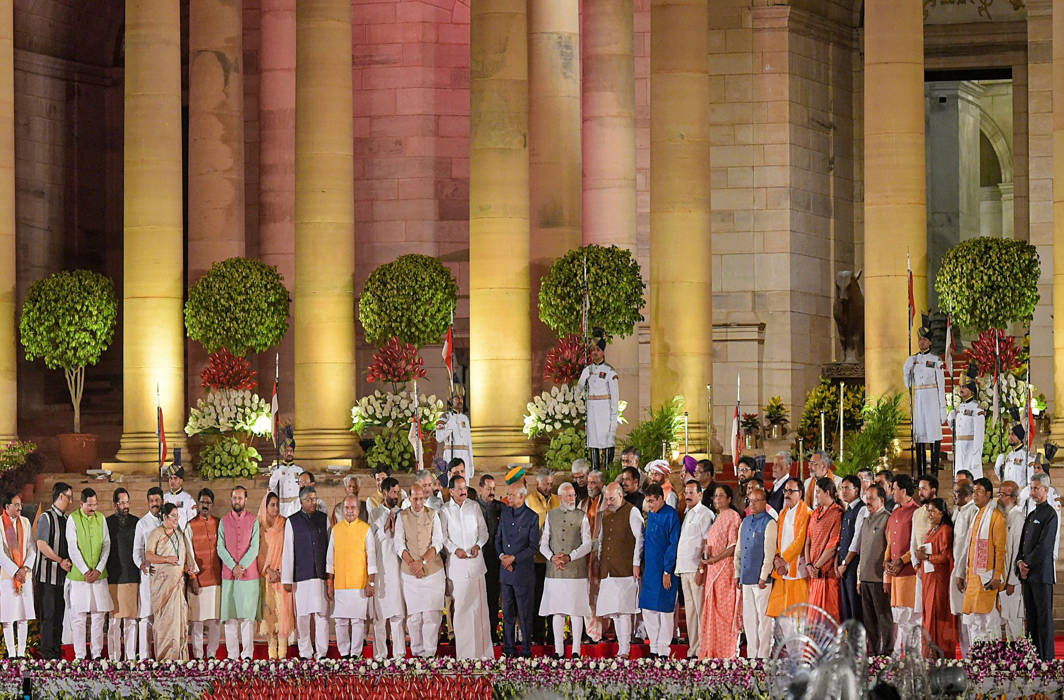Latest business news
Amid fears over safety of bank deposits due to FRDI Bill, reports of corporate loan write offs

If big corporate houses do not repay loans, will banks take over your money? It may seem ridiculous or outlandish, but there are fears that it may become a distinct possibility.
Amid fears over Financial Resolution and Deposit Insurance (FRDI) Bill, 2017 – expected to come up for passage in forthcoming winter session of Parliament – authorising take over of account holders’ control over their deposits in failing banks, came a report that banks have written off over a lakh of crores of loans.
The public sector banks, that account for 63 per cent of investments made by people, have written off Rs 55,356 crore worth of loans in the first six months of fiscal 2017-18, said a repport in The Indian Express, quoting data compiled by credit rating agency ICRA.
This, said the report, was done under banks’ attempt to clean up their balance sheets after a string of defaults by firms and promoters in the wake of the economic slowdown.
The write-off in the last six months was 54 per cent higher than the Rs 35,985 crore written off in the same period last year. Banks are reportedly struggling to resolve many cases of repayment of loans and recover money stuck with corporate defaulters through insolvency proceedings.
Figures obtained by The Indian Express from the RBI through the Right to Information (RTI) Act for the last decade show that banks had written off Rs 2,28,253 crore in nine years — from fiscal 2007-08 to 2015-16.
While the RBI did not provide data for the subsequent period, the ICRA, responding to a questionnaire, said that write-offs amounted to Rs 1,32,659 crore in 2016-17 and the first six months of 2017-18, said the IE report.
This means the total write-off in the last ten years is now over Rs 3,60,000 crore, the report said.
Banks were engaged in a massive write-off of loans over the years and the figure hit a high of Rs 77,123 crore during the year ended March 2017, against Rs 57,585 crore in fiscal 2015-16. Ten years ago, in 2007-08, loans written off by banks were just Rs 8,019 crore, the RBI said in its reply to an RTI query.
Gross non-performing assets (GNPA) are likely to peak at Rs 8,80,000-Rs 9,00,000 crore (10.0-10.2 per cent) by the end of FY2018 as against NPAs of 9.5 per cent (Rs 765,000 crore) as on March 31, 2017, said the IE report quoting ICRA group head Karthik Srinivasan.
“A substantial portion of this write-off is, however, technical in nature. It is primarily intended at cleansing the balance sheet and achieving taxation efficiency. In ‘Technically Written Off’ accounts, loans are written off from the books at the Head Office, without foregoing the right to recovery. Further, write-offs are generally carried out against accumulated provisions made for such loans. Once recovered, the provisions made for those loans flow back into the profit and loss account of banks,” the RBI had said in an explanatory note.
M Narendra, former chairman and MD of Indian Overseas Bank, said, “The write-off is just a technical book entry. Banks are not losing anything. It doesn’t mean banks are giving up those assets. They will continue with various recovery methods.”
However, a former RBI official quoted in the IE report said, “Technical write-off creates non-transparency, destroys the credit risk management system and brings all types of wrongdoings into the system.”
“I have nothing against a write-off but it has to be done scarcely and within a policy, with all efforts taken to recover the money. Any asset which is backed up by tangible asset is never written off. Secondly, you must be subject to scrutiny for these write-offs. There must be a policy. You ask any bankers. They have written off Vijay Mallya’s loan. Then how are they going to recover that money? Use it very sparingly and do it where it’s essential. If there’s asset, why are you writing it off?” the official said.
Significantly, the write-offs come amid government’s efforts to enable a clean-up of balance sheets of banks.
It is in this context that a bill was approved by the government in June 2017 for helping resolve problems of failing banks. Details of the bill, Financial Resolution and Deposit Insurance (FRDI) Bill, 2017, that came out in the media have given rise to deep fears among bank depositors. The Bill, at present before a Select Committee of the Parliament, was opposed by Bank unions who issued a joint statement last month saying that the proposed law will open up public sector banks for liquidation or amalgamation, which could put the deposits of customers under severe risk.
The bill also provides for a bail-in option, which means depositors could lose control of their money which could be converted into securities such as shares in the bank in case the bank’s financial situation deteriorates.
The “bail-in” powers would be exercised by a body called Resolution Corporation, proposed to be set up in Bill, for saving a bank which is on the verge of collapse.
The ‘bail-in’ is method used for rescuing a financial institution on the brink of failure by making its creditors and depositors take a loss on their share holdings or deposits. A bail-in is the opposite of a ‘bail-out’, which involves the rescue of a financial institution by external parties, typically governments using taxpayers’ money.
Governments usually resort to bail-outs rather than bail-ins, “but in recent years after massive bail-outs some governments now require the investors and depositors in the bank to take a loss before taxpayers,” according to a report.
Section 52 of the FRDI Bill gives the Resolution Corporation powers to cancel a liability of a bank. ‘Liability’ of a bank is the money in a savings or fixed deposit account that the bank owes to its customer. This means that the RC can declare the bank doesn’t owe you any money. It can also modify or change the form of liability, meaning if you have deposited money for using it for something after 5 years, the bank may instead convert it into a deposit with a lock-in of 15 years without your consent. The Bill also has a provision that allows the RC to exempt the failing bank for fulfilling its obligations under a contract or an agreement.
Seeking to allay fears, Finance and Corporate Affairs Minister Arun Jaitley has said the legislation is still at the drafting stage and could see several ‘corrections’ before its passage,
“The Bill still has to go through the overall drafting process. The Parliamentary committee can offer drafting suggestions. Thereafter it will go back to the Cabinet,” Jaitley said.
“The Cabinet will place the recommendations in the public domain and ask for feedback. So I think a lot of corrections will take place,” the Minister said.
Latest business news
Google restores delisted Indian apps after government intervention
Google on Saturday restored all Indian apps it had removed.

Google has started to restore all the delisted Indian mobile apps on Play Store agian, which they had removed due to a disagreement over service fees. After a discussion between company representatives and IT Minister Ashwini Vaishnaw, the decision was made, according to sources.
The step was taken in response to Vaishnaw’s strong statement in which he said that it is not allowed for apps to be removed from the Google Play Store. The minister had said, India is very clear, our policy is very clear…our startups will get the protection that they need.
Vaishnaw continued saying that he has already given Google a call. They will be speaking with the app developers who were delisted this week. This is not acceptable. The minister said this kind of delisting cannot be permitted.
Ten Indian companies’ apps were banned by Google on Friday, causing outrage in one of its fastest-growing markets. With 94% of phones running on its Android platform, Google holds a large portion of the Indian market. Popular names like Naukri and Bharatmatrimony were on the list.
The main point of contention is Google’s in-app purchase fees, which range from 11% to 26%. Indian startups have long opposed the US tech giant’s actions, believing them to be unfair.
The founder of Bharat Matrimony, Christian Matrimony, Muslim Matrimony, and Jodii, Matrimony.com, expressed shock at the matchmaking apps’ removal from the Google Play Store.
Shaadi. Com CEO Anupam Mittal described it as a dark day for India’s internet, highlighting the possible broad effects on matchmaking services. He also called Google an evil.
While, Kuku FM Co-founder Vinod Kumar Meena in a statement had said that Google was behaving like a monopoly.
Meanwhile, Google temporarily withdrew the famous Indian payments app Paytm from the Play Store in 2020, claiming a few policy infractions. Due to this decision, the founder of the company as well as the larger startup community came together to build their own app stores and file lawsuits against Google.
Latest business news
Anant Ambani says he is 100% lucky to get Radhika Merchant in his life
Anant Ambani said he was grateful to get Radhika as his life partner. He said he is 100% lucky to get Radhika Merchant in his life. He said every day he is falling more and more in love with her. He added although he had known Radhika for the last 7 years, it felt he had met her only yesterday. He thanked Radhika for everything.

Anant Ambani and Radhika Merchant’s grand three-day wedding celebrations began with a glamorous cocktail night on Friday in Jamnagar. During the celebrations, Anant Ambani also gave a speech wherein he thanked his late grandfather Dhirubhai Ambani and grandmother Kokilaben Ambani for inspiring him. Anant Ambani said he was grateful to get Radhika as his life partner. He said he is 100% lucky to get Radhika Merchant in his life. He said every day he is falling more and more in love with her.
He expressed his gratitude to his mother for pulling together the lavish three-day wedding celebrations in Jamnagar. Anant thanked his mother for all she had done. He said all the arrangements had been done by his mother and nobody else. He added his mother had gone all out and she had worked 18-19 hours a day and he was extremely grateful to her.
He also thanked all the guests who were present there at the pre-wedding celebrations. He said everyone had made it to Jamnagar to make him and Radhika feel special. He said both of them were honored and humbled to have all of them present there. Anant said he was sorry if they had caused an inconvenience to anyone. He asked for forgiveness. He hoped everyone is going to enjoy the coming three days. He also thanked his mother, father, sister, brother, his sister-law and his brother in-law for making this event memorable.
Anant said everyone has been sleeping for less than 3 hours a day for the last 2-3 months and he was very happy to share this joy with everyone. The youngest Ambani talked about his personal struggles and how his parents had always supported him. He further added his life had not been entirely a bed of roses. He said he had also experienced the pain of thorns. He said he had faced many health crises.
Latest business news
Facebook chief Mark Zuckerberg shares pictures from 2nd day of Anant Ambani and Radhika Merchant pre-wedding celebrations
Zuckerberg shared pictures from the 2nd day of Anant Ambani and Radhika Merchant’s pre-wedding celebrations. In the photograph Mark Zuckerberg can be seen along with his wife Priscilla Chan. The couple is exuding happiness as they prepare for the event. He captioned the picture it is getting wild out here.

Facebook boss Mark Zuckerberg and wife Priscilla Chan joined the star- studded pre-wedding celebrations of Anant Ambani and Radhika Merchant in Jamnagar on Friday. The event was attended by many prominent figures from different fields. Zuckerberg took to his Instagram handle congratulated the couple and said he loved Indian weddings.
Zuckerberg shared pictures from the 2nd day of Anant Ambani and Radhika Merchant’s pre-wedding celebrations. In the photograph Mark Zuckerberg can be seen along with his wife Priscilla Chan. The couple is exuding happiness as they prepare for the event. He captioned the picture it is getting wild out here.
The theme of the opening day of the pre-wedding celebrations was Evening in Everland as the guests wore cocktail attire. The first day of the grand celebrations elevated the expectations of the guests for the following days. The theme of the 2nd day of the pre-wedding bash is known as a Walk on the Wildside and the guests can be seen in Jungle Fever attire.
Zuckerberg has opted for an animal print shirt with white trousers, Chan is complementing his look in a strappy one piece in black and golden. The Jungle theme is aligned to Vantara, Reliance’s animal welfare initiative undertaken and launched by Anant Ambani a few days back.
International pop star Rihana electrified the pre wedding celebrations on Friday with an amazing performance, marking her debut appearance in India. The chart topping artist engaged the audience with performances of her iconic hits which included Pour it Up, Work and Diamonds.
Zuckerberg graced the opening day, wearing a black-on-black firefly blazer and shoes from Alexander McQueen while his wife Priscilla wore a black gown with gold flower details and other accessories such as dainty chain bracelet, gold necklace and stud earrings. Mark Zuckerberg and wife Priscilla Chan are one of the Power couples invited from the global business community for the festivities currently underway at Jamnagar.
-

 Entertainment22 hours ago
Entertainment22 hours agoBollywood stars Vidya Balan, Kartik Aaryan, Pratik Gandhi, Ileana D’Cruz, Mouni Roy, Radhika Madan, Mrunal Thakur attend Do Aur Do Pyaar premiere
-

 Cricket news20 hours ago
Cricket news20 hours agoHappy Birthday KL Rahul: Suniel Shetty wishes son-in-law KL Rahul on his 32nd birthday
-

 India News24 hours ago
India News24 hours agoReligious outfit vandalises The Blessed Mother Teresa High School in Telangana after teachers object to students wearing Hanuman Deeksha dress
-

 2024 Lok Sabha Elections3 hours ago
2024 Lok Sabha Elections3 hours agoPrime Minister Narendra Modi urges citizens to vote in record numbers as voting for first phase of Lok Sabha elections begins on 102 seats across India
-

 India News19 hours ago
India News19 hours agoEnforcement Directorate seizes Shilpa Shetty’s husband Raj Kundra’s properties worth Rs 97 crore
-
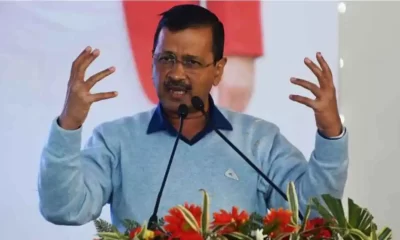
 India News18 hours ago
India News18 hours agoEnforcement Directorate says Arvind Kejriwal is deliberately eating mangoes, sweets, taking sugar with tea to increase his blood sugar level and create ground for bail
-

 2024 Lok Sabha Elections2 hours ago
2024 Lok Sabha Elections2 hours agoKamal Haasan, Rajinikanth, Vijay Sethupathi, Dhanush vote in Chennai
-

 2024 Lok Sabha Elections3 hours ago
2024 Lok Sabha Elections3 hours agoLok Sabha elections 2024: Google Doodle marks the start of polls with index finger voting symbol

